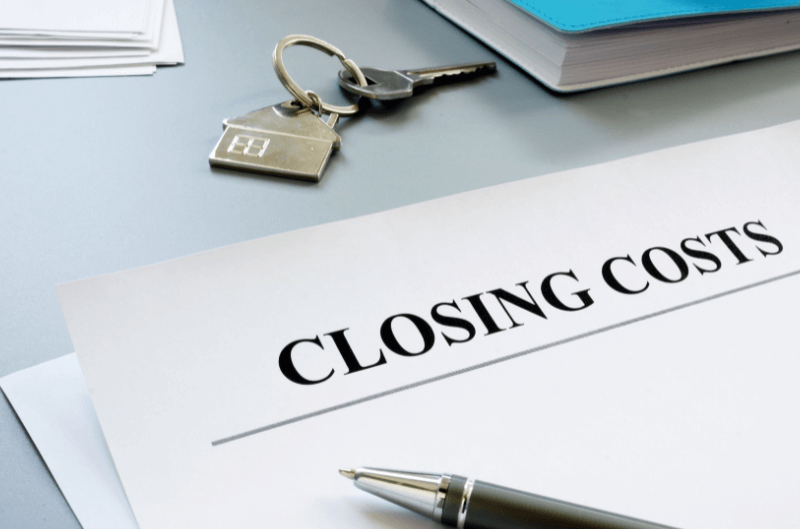
Navigating the home-buying process can be like solving a complex puzzle, especially when anticipating costs and budgeting accordingly. One expense that often blindsides homebuyers is the closing cost.
As a prospective homebuyer in Minnesota, understanding the average closing cost on the house can prepare you financially and save you from surprises.
Closing costs, an umbrella term for several fees related to finalizing a mortgage, are a crucial aspect of the home-buying journey that you can’t overlook. In this post, we’ll demystify the average closing cost on the house in Minnesota and provide some helpful tips to reduce these costs potentially.
Ready to take the guesswork out of your closing costs? Let’s dive in.
Average Closing Cost on a House
Closing costs typically range from 2% to 5% of your home’s purchase price. In Minnesota, the average closing cost for a single-family home can vary based on the home’s value, the type of loan you choose, your credit score, and other factors that can affect the borrower.
According to data from ClosingCorp, Minnesota’s average closing costs, including lender fees and third-party charges, are estimated at around $3,279. However, this number can be higher or lower depending on your specific situation.
These costs cover many services, including loan origination, appraisal fees, title search, prepaid expenses like homeowners insurance, and more. For instance, an origination fee, which your lender charges for processing your home loan, can be about 0.5% to 1% of your loan amount.
You also need to pay for a home appraisal to assess the home’s value, which typically costs between $300 to $400. There’s also a fee for a title search to ensure no liens or issues with transferring the property to your name.
Consider recording fees, typically charged by your local government, to record the mortgage officially. You’ll also encounter a title insurance policy in two forms: lender’s title insurance, which protects the lender against problems with the title, and owner’s title insurance, which shields you as the homeowner.
Furthermore, homeowners insurance, typically required by mortgage lenders, can add to your closing fees. And if you’re putting down less than 20% of the home’s purchase price, you might also need to pay for PMI (Private Mortgage Insurance).
In addition to PMI, other insurance-related closing costs may be considered. For instance, if you’re taking out a VA loan or FHA loan, you may be required to pay an upfront mortgage insurance premium or a funding fee.
These costs can be rolled into your loan amount or paid at closing, but they add to the overall cost. On the other hand, a conventional loan might not require these costs, making it a potentially cheaper option, especially for first-time homebuyers with a good credit score.
Then there are property taxes, usually prorated and paid at closing, and title insurance to protect you from title errors or disputes.
When you consider the diverse range of services involved, it becomes clear why the question “How much are the closing costs?” is common among homebuyers in Minnesota.
Remember, understanding these costs can help you budget more accurately and even negotiate to get the seller to pay for some or all of them – a strategy we often recommend as experienced cash home buyers in Maple Grove.
Need to Sell Your House Fast?
We buy houses as-is, at the best price in the market!
Just fill out the form below or give us a call at: (612) 260-5577 to get your free, no-obligation cash offer!
Most Expensive Closing Cost on a House
Among the many expenses contributing to the closing cost, some are significantly pricier than others. The most expensive is the origination fee and discount points you purchase.
Your lender charges the origination fee to cover the closing cost of processing your loan application. This fee can range from 0.5% to 1% of your loan amount. For instance, if you’re buying a house for $300,000, the origination fee could be between $1,500 and $3,000.
Discount points are optional and can be purchased to lower your interest rate over the lifetime of your loan. Each point typically costs 1% of your mortgage loan and reduces your interest rate by about 0.25%. If you’re planning to stay in the house for a long time, buying discount points could save you a significant amount over the life of your loan. However, it’s a considerable upfront cost that needs to be factored into your mortgage closing costs.
You might also need to pay for Private Mortgage Insurance (PMI) if your down payment is less than 20% of the home’s purchase price. Plus, your local government may charge transfer taxes.
The escrow fee is another buyer’s closing cost that could be part of your closing expenses. This is typically split between the buyer and seller and covers the cost of having a third party manage the escrow process. This process involves holding and transferring the funds during the transaction, ensuring that all conditions are met before the deal is finalized.
If the property is part of a homeowners association (HOA), you may be required to pay an HOA transfer fee. If a real estate attorney is involved, you may be required to pay the attorney fees and an HOA transfer fee. Some locations charge a recording fee for the new deed, which can vary depending on your local government’s rules.

Cheapest Closing Cost on a House
On the other end of the spectrum, there are less costly elements of closing costs. These may include fees for pulling your credit report, usually around $30. Courier fees, which cover transporting documents to complete the loan transaction, typically range from $20 to $50.
Also relatively inexpensive are recording fees, charged by a local recording office to officially record the change of ownership for the house. Depending on your location, these fees usually fall between $25 to $250.
Remember, these are general estimates, and the actual cost can vary depending on several factors.
The lender may charge processing fees to process your mortgage application. The lender might also charge underwriting fees for assessing your creditworthiness and determining your mortgage payment.
And while these costs may seem small in isolation, they can add up to a significant amount when combined with all the other expenses.
Although generally less expensive, remember to consider fees like a credit report fee, which is the cost of having the lender pull your credit report. Your credit report and credit score play a significant role in determining your interest rate and loan terms. There might also be an inspection fee if a home inspection is part of your home purchase process.
When it comes to closing costs, understanding what you’re paying for, shopping around for the best mortgage rates, and leveraging the experience of a real estate agent can help you ensure that you don’t pay a cent more than necessary.
After all, it’s our business to know the cheapest ways to sell a house and help you avoid unnecessary expenses. Whether you’re looking to sell a house fast in Minneapolis or buy a new home, we’re here to assist with every step.
How To Reduce Closing Costs in Escrow on a House
You can take several steps to reduce the closing costs while in escrow of a house. Here are a few strategies:
- Shop around: Just like you would compare prices for major purchases, it’s beneficial to shop around and compare loan estimates from different mortgage lenders. The difference in costs can be significant.
- Negotiate with the seller: You can negotiate the sale price to have the seller pay some of your closing costs in the purchase agreement. This is commonly referred to as seller concessions.
- Check for lender fees: Some lenders may charge fees that others do not, such as application fees, processing fees, or underwriting fees. Ask about these, negotiate, or shop around if they seem high.
- Close at the end of the month: By scheduling your closing date at the end, you can reduce the amount of per diem interest you’ll need to pay.
- Ask your lender about no-closing-cost or low-closing-cost options: In these cases, the lender will cover part or all of your closing costs in exchange for a slightly higher interest rate on your loan.
It’s also worth considering the seller’s role in reducing your closing costs. Depending on how eager the seller is to close the deal, they may be willing to contribute towards your closing costs. This can be a significant saving if you can negotiate successfully.
Remember, if you’re looking for cash home buyers in Maple Grove or elsewhere in Minnesota, Mill City Home Buyers can provide the support and expertise you need to navigate your closing costs efficiently.
Conclusion
The closing cost on a house in Minnesota can vary widely, but its average is between 2% to 5% of the home’s purchase price. While there are some significant expenses like origination fees and discount points, there are also smaller costs like credit report and courier fees. However, with careful planning, comparison shopping, and negotiation, you can reduce these costs in escrow and make buying your new home less financially daunting.
Remember, understanding closing costs in escrow is a crucial part of the home-buying process. Whether you’re a first-time homebuyer or have been through the process, Mill City Home Buyers is here to help you navigate these costs and get the best deal possible on your new home. We buy houses Minnesota owners want to sell for low closing costs, so contact us today to see how we can assist you.
